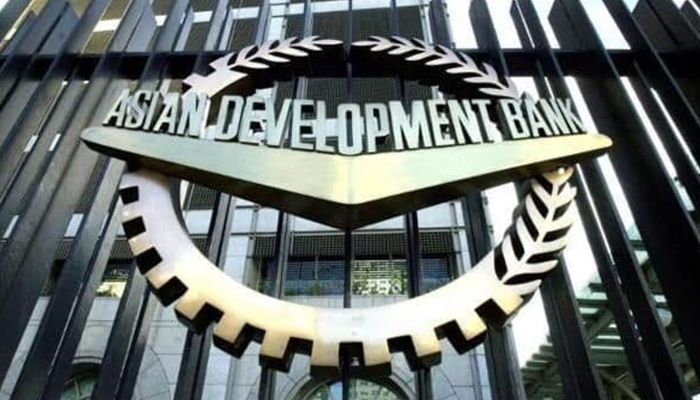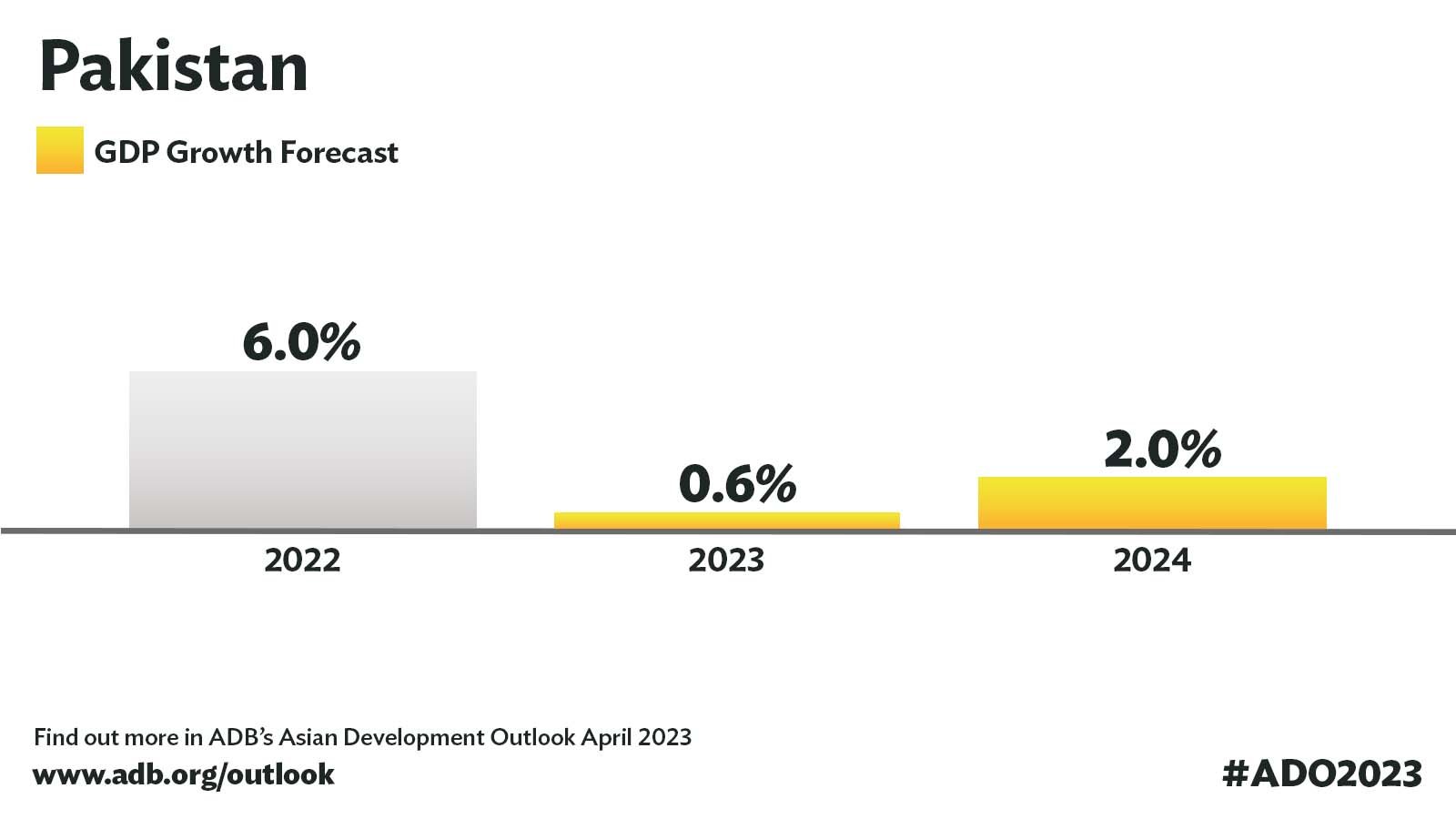Robust reforms crucial for Pakistan's economic recovery: ADB
"Pakistan’s economy continues to face strong headwinds while last year’s catastrophic floods have exacerbated the economic and financial challenges,” ADB report says
The Asian Development Bank (ADB) said Tuesday that Pakistan’s economic growth is expected to slow significantly in FY2023 (ends 30 June 2023) in the wake of last year’s devastating floods, ballooning inflation, a current account deficit, and an ongoing foreign exchange crisis.
According to the Asian Development Outlook (ADO) April 2023, ADB’s flagship economic report, Pakistan’s gross domestic product (GDP) growth is projected to slow to 0.6% in FY2023 from 6% last fiscal year as the economy struggles to recover.
Growth is forecast to rise to 2% in FY2024, assuming the resumption of macroeconomic stability, implementation of reforms, post-flood recovery, and improving external conditions.
"Pakistan’s economy continues to face strong headwinds while last year’s catastrophic floods have exacerbated the economic and financial challenges,” said ADB Country Director for Pakistan Yong Ye.
“Yet, with a history of resilience in the face of adversity and depending on a fast return to stability twinned with robust macroeconomic and structural reforms, Pakistan can bounce back. ADB is committed to continuing to support Pakistan’s economic recovery and development plans.”
ADO April 2023 notes that climate change poses a grave challenge to Pakistan's economic, social, and environmental development.
According to the Global Climate Risk Index, the country has ranked among the 10 most vulnerable nations worldwide in the past two decades.
Climate-induced extreme weather has led to thousands of fatalities and colossal losses in agriculture, infrastructure, and the economy.
In FY2023, industrial growth is forecast to continue decelerating, which reflects fiscal and monetary tightening, a significant depreciation of the local currency, and higher domestic oil and electricity prices. The fiscal deficit is projected to narrow slightly to the equivalent of 6.9% of GDP in FY2023.
If the International Monetary Fund (IMF) programme remains on track, the deficit will likely continue to shrink in the medium term as measures to mobilise more revenues — such as harmonising general sales taxes — gain momentum.
Average inflation is projected to more than double from 12.2% in FY2022 to 27.5% this fiscal year. Headline consumer inflation jumped to 25.4% in the first seven months of the fiscal year on higher domestic energy prices, a weaker currency, flood-related disruptions to supply, and restraint on imports caused by the balance of payment crisis.
As a net importer of oil and gas, Pakistan will continue experiencing strong inflationary pressures for the rest of FY2023.
"ADB is committed to achieving a prosperous, inclusive, resilient, and sustainable Asia and the Pacific, while sustaining its efforts to eradicate extreme poverty. Established in 1966, it is owned by 68 members — 49 from the region," the bank said in a statement.
-
Bitcoin crashes below $63K as regulatory pressure and market fears grow
-
Bitwise Crypto Industry innovators ETF: What investors should do in 2026?
-
Nintendo shares slide again as momentum fears grow
-
Gold, silver prices fallen sharply; What’s driving the drop?
-
Gold’s record climb: Experts question if its safety is ‘overstated’
-
Dubai unveils plans to construct street built with real gold
-
Netflix slams Paramount’s bid: 'Doesn't pass sniff test’ as Warner battle escalates
-
Ubisoft: Shares plunge amid restructuring plan and wave of games cancellations













